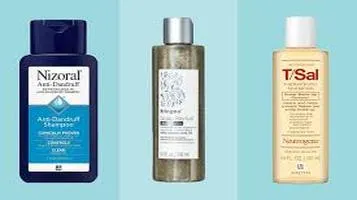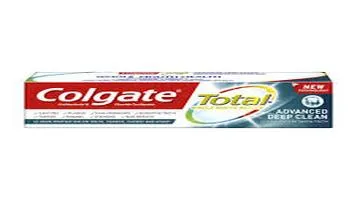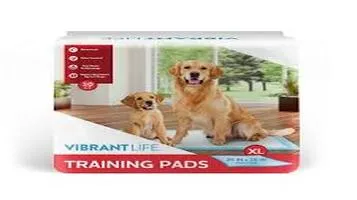Comprehensive Review of Effective Dandruff Treatments
Effective dandruff treatments focus on reducing scalp flakiness, itchiness, and irritation through a combination of specialized shampoos, natural remedies, and lifestyle adjustments. Medicated shampoos containing ingredients like zinc pyrithione, selenium sulfide, ketoconazole, or coal tar are commonly recommended, as they target the underlying fungal causes and reduce scalp inflammation. For a natural approach, tea tree oil and aloe vera are popular for their antifungal and soothing properties. Regular hair washing with gentle, hydrating shampoos helps maintain scalp cleanliness and moisture balance. It's also beneficial to manage stress and maintain a healthy diet, as both can influence scalp health. Consistency and patience are key, as treatments may take several weeks to show significant results.

Dandruff, characterized by flaky scalp skin, is a common yet often frustrating condition. It can be caused by a variety of factors including seborrheic dermatitis, dry skin, sensitivity to hair products, or the overgrowth of a yeast-like fungus called Malassezia. Fortunately, a plethora of treatments are available that effectively combat dandruff, each with its unique mechanism of action and benefits. This review aims to explore some of the most effective dandruff treatments available today.
1. Medicated Shampoos
Medicated shampoos are perhaps the most commonly recommended treatment for dandruff. They contain active ingredients designed to address the root causes of dandruff.
- Zinc Pyrithione: This ingredient is widely used in anti-dandruff shampoos due to its anti-fungal and anti-bacterial properties. Shampoos containing zinc pyrithione, such as Head & Shoulders, help reduce the Malassezia yeast on the scalp, thereby controlling dandruff.
- Ketoconazole: An effective anti-fungal agent, ketoconazole is found in shampoos like Nizoral. It targets the fungi that contribute to dandruff, providing relief from flaking and itching. Ketoconazole is often recommended for more severe cases of dandruff or seborrheic dermatitis.
- Selenium Sulfide: This ingredient works by reducing fungus and decreasing the turnover of skin cells. Selsun Blue is a popular shampoo containing selenium sulfide. It can be highly effective but may also cause discoloration of the hair with prolonged use.
- Salicylic Acid: Known for its exfoliating properties, salicylic acid helps remove scales that build up on the scalp. Shampoos like Neutrogena T/Gel use salicylic acid to facilitate the shedding of dead skin cells, preventing the formation of visible flakes.
- Coal Tar: Another ingredient in Neutrogena T/Gel, coal tar slows down the production of skin cells and has anti-inflammatory properties. However, it can have a strong odor and may stain light-colored hair.
2. Natural Remedies
For those preferring a more natural approach, several home remedies have shown promise in controlling dandruff.
- Tea Tree Oil: This essential oil has potent antimicrobial and anti-inflammatory properties, making it effective against dandruff. Adding a few drops of tea tree oil to regular shampoo or purchasing shampoos that already include it can help reduce symptoms.
- Apple Cider Vinegar: Known for its ability to balance the scalp’s pH and its antimicrobial properties, apple cider vinegar can be used as a rinse to help alleviate dandruff. Mixing equal parts of apple cider vinegar and water and applying it to the scalp can reduce flakiness and itching.
- Aloe Vera: With its soothing and moisturizing properties, aloe vera can help calm an irritated scalp and reduce dandruff. Applying pure aloe vera gel directly to the scalp can provide relief from itching and dryness.
3. Lifestyle Changes
Sometimes, dandruff can be exacerbated by certain lifestyle factors. Addressing these can help in reducing symptoms.
- Diet: A diet rich in zinc, B vitamins, and healthy fats can support scalp health and reduce dandruff. Foods like nuts, seeds, fish, and leafy greens are beneficial.
- Stress Management: Stress can trigger or worsen dandruff. Engaging in stress-reducing activities such as yoga, meditation, or regular exercise can help manage dandruff symptoms.
- Proper Hair Care: Regular washing with a mild shampoo can help keep the scalp clean and prevent the build-up of oils and dead skin cells. However, over-washing can strip the scalp of natural oils, so finding a balance is crucial.
4. Prescription Treatments
In cases where over-the-counter treatments are ineffective, a dermatologist may prescribe stronger treatments.
- Topical Steroids: For severe inflammation, topical steroids can be prescribed to reduce redness and itching. These are usually used for short periods due to potential side effects.
- Antifungal Medications: Oral antifungal medications may be prescribed for severe dandruff caused by fungal infections. These are typically used as a last resort when other treatments have failed.
Conclusion
Dandruff, while a common and often benign condition, can be a source of significant discomfort and self-consciousness. The key to effective treatment lies in identifying the underlying cause and choosing the appropriate remedy. Medicated shampoos with active ingredients like zinc pyrithione, ketoconazole, selenium sulfide, salicylic acid, and coal tar are widely effective. For those inclined towards natural treatments, options like tea tree oil, apple cider vinegar, and aloe vera offer viable alternatives. Lifestyle changes, including a healthy diet, stress management, and proper hair care, also play a crucial role in managing dandruff. In persistent or severe cases, professional medical advice should be sought to explore prescription treatments. With the right approach, dandruff can be effectively managed, allowing individuals to enjoy a flake-free scalp and improved self-confidence.





